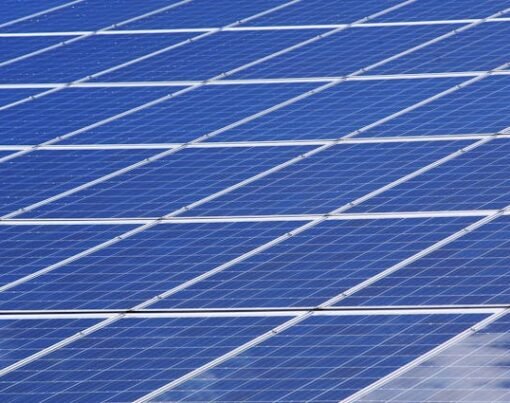Indoor air quality plays a crucial role in the overall health and well-being of occupants in residential spaces according to JTS Property Management in Roseville. Poor IAQ can lead to various health issues, including respiratory problems, allergies, and other adverse effects. To ensure a healthier home environment, it’s essential to understand the significance of indoor air quality and explore optimization strategies, mainly through HVAC (Heating, Ventilation, and Air Conditioning) systems. We will delve into the various aspects of IAQ, its impact on health, and practical strategies for improving air quality with the assistance of HVAC systems.
Table of Contents
The Significance of Indoor Air Quality
Indoor air quality refers to the air condition within a building, including its cleanliness, freshness, and safety. Since many people spend most of their time indoors, whether at home, work, or other enclosed spaces, the quality of indoor air directly impacts their health and comfort. Several factors contribute to IAQ, including pollutants, humidity, temperature, and ventilation. Poor IAQ can lead to various health problems. Respiratory issues, allergies, and asthma can worsen when exposed to indoor air pollutants such as dust mites, mold, pet dander, tobacco smoke, and volatile organic compounds (VOCs). Long-term exposure to poor IAQ has also been linked to more severe health concerns, including cardiovascular diseases and cancer. It is, therefore, imperative to prioritize and maintain good indoor air quality to safeguard the health of occupants.
The Role of HVAC Systems in Indoor Air Quality
HVAC systems are integral to residential and commercial buildings, regulating temperature and humidity levels while providing adequate ventilation. HVAC systems can significantly influence and improve IAQ when correctly designed, installed, and maintained.
● Filtration and Air Purification:
One of the primary functions of HVAC systems is to filter and purify indoor air. High-efficiency particulate air (HEPA) filters, electronic air purifiers, and UV germicidal lamps are some technologies used to remove particles, allergens, and microorganisms from the air. These components trap or neutralize contaminants stemming from circulating through the indoor environment.
● Ventilation:
Adequate ventilation is paramount for replenishing indoor air with fresh outdoor air. HVAC systems can facilitate this by exchanging stale indoor air with clean outdoor air. Proper ventilation also helps control humidity levels and prevents the buildup of indoor pollutants.
● Temperature and Humidity Control:
Maintaining comfortable temperature and humidity levels is another paramount role of HVAC systems. Maintaining optimal humidity levels between 30% and 50% helps inhibit the growth of mold and dust mites, reducing the risk of respiratory issues and allergies.
Effective Strategies for Improving Indoor Air Quality
● Regular HVAC Maintenance:
Scheduled maintenance of HVAC systems is crucial for ensuring optimal performance. This includes cleaning or replacing air filters, inspecting and cleaning ducts, and checking for system malfunctions. Routine maintenance prevents the buildup of dust and contaminants within the system and promotes efficient filtration.
● High-Efficiency Air Filters:
Upgrading to high-efficiency air filters, such as HEPA filters, can significantly improve the filtration capabilities of your HVAC system. These filters capture more particles and allergens, contributing to better IAQ.
● Proper Ventilation:
Ensure your HVAC system provides adequate ventilation by regularly changing the air exchange rate. Balancing ventilation with energy efficiency is essential, and it may involve adjusting settings based on occupancy and outdoor air quality.
● Humidity Control:
Proper humidity levels within your home can be achieved by using a humidifier or a dehumidifier, depending on the climate. Monitoring and controlling humidity prevents mold growth and enhances comfort.
● Air Purifiers:
Consider installing air purifiers or electronic air cleaners with your HVAC system to remove further particles, allergens, and microorganisms from the air. These systems can be particularly beneficial for individuals with allergies or asthma.
● Sealing and Insulating:
Properly sealing and insulating your home can help prevent the infiltration of outdoor pollutants and allergens. Addressing drafts and gaps around windows, doors, and walls improves IAQ by minimizing outdoor air pollutants’ entry.
● Regular Cleaning:
Regular cleaning of your home, including vacuuming carpets, wiping down surfaces, and laundering bedding and curtains, can help reduce indoor pollutants and allergens. Pay attention to areas where dust and dirt tend to accumulate.
● Avoid Smoking Indoors:
Tobacco smoke is a potent indoor air pollutant and a known carcinogen. Avoid smoking indoors to maintain better IAQ and protect the health of occupants.
● Limit VOCs:
Volatile organic compounds (VOCs) are emitted by certain household products and can contribute to poor IAQ. Choose low-VOC or VOC-free products when possible and ensure good ventilation when using products that emit VOCs.
Optimizing indoor air quality is a paramount consideration for homeowners and building occupants. Poor IAQ can lead to a range of health problems, from minor allergies to more severe respiratory and cardiovascular issues. HVAC systems play a crucial role in maintaining and improving IAQ through filtration, ventilation, temperature, and humidity control. By adopting effective strategies such as regular HVAC maintenance, high-efficiency air filters, proper ventilation, humidity control, air purifiers, sealing and insulating, regular cleaning, and avoiding indoor smoking and VOCs, homeowners can create a healthier indoor environment. Prioritizing indoor air quality not only enhances the comfort and well-being of occupants but also contributes to a safer and healthier living space. When it comes to keeping your home comfortable and your indoor air quality optimal, Canoga Park heating and air services or HVAC in Canoga Park are your trusted partners for expert solutions.










